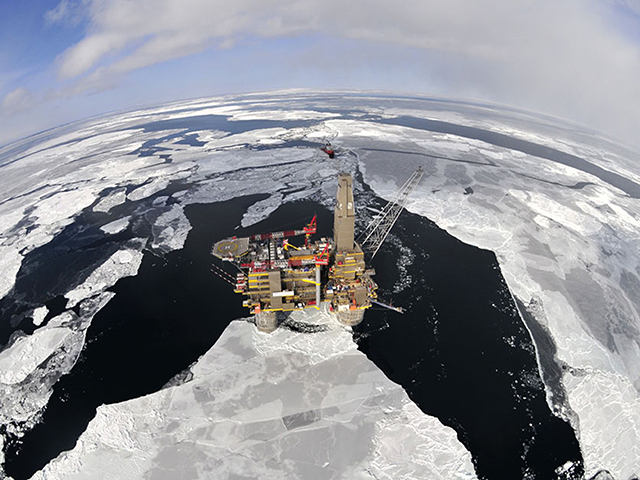
New oil production from the Arctic is unlikely to happen for at least 15 years due to technical and logistical challenges, according to the chairman of Swedish exploration firm Lundin Petroleum.
“I don’t think we’ll see any oil production in the Arctic any time soon, probably not this decade and not the next. The commercial challenges are too big,” said chairman Ian Lundin.
“It may take a while to develop the right technology. Investments are very, very high so it still has to be commercially justified.”
According to the U.S. Geological Survey, the Arctic holds 30% of the world’s undiscovered natural gas reserves and 13% of its undiscovered oil.
However, exploration of the Arctic ocean floor, where 84% of these resources are thought to be trapped, has suffered setbacks in recent years.
In January, Shell halted drilling plans off Alaska after a court ruled the area had been illegally opened to exploration. That followed a previous postponement after a series of technical mishaps in 2012, including the stranding of a rig.
Meanwhile, off the coast of Greenland, drilling is yet to resume after Cairn Energy spent £600million on exploration without making commercial finds in iceberg-ridden waters, while Russia’s Shtokman gas project, 370 miles from shore in the Barents Sea, has been stalled for years.
Some oil production has started in the Arctic – BP’s Prudhoe Bay field in Alaska has been producing since the 1970s, and OAO Gazprom became the first Russian company to extract oil from the Arctic seabed in December last year at the Prirazlomnoye field in the Pechora Sea.
Lundin said the southern part of Norway’s Barents Sea was an exception to Arctic challenges, benefitting from a less-harsh climate and shallower and ice-free waters.
The area is thought to hold around 8billion barrels of oil equivalent in undiscovered resources – more than 40% of the country’s total.
The next licensing round in Norway will focus on the Barents, with 54 out of the 61 blocks proposed by the government located in the area.
Lundin said: “In the Barents Sea we’ll probably see production much sooner because there’s no technological gap. It’s now just a matter of having the reserve base that you’re required to have to justify the investment.”